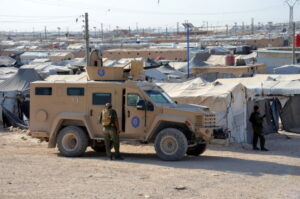The announcement of the Referendum to take place on July 5 caused a multinational corporation to study the affects that a ‘no’ result would have on society and the Greek economy at large. The company – that wishes to remain anonymous – studied all the repercussions of ‘no’. Without revealing their statistical sources or whether they had conducted a similar study on the repercussions of a ‘Yes’ result – some might argue just as distressful – the following results were calculated using their own statistical methods:
Capital controls on the community
– Shortages of basic goods
– Non-payment of wages and pensions
– Social welfare state will not be fully functional
– Disappearance of middle class and small businesses
– Unemployment increase
– Problems to national and internal security
– Disappearance of cash reserves and “sudden death” to the economy
– Disappearance of income and weakening of the social state as well as (already mentioned above) shortages of goods that could have consequences on the lower socioeconomic classes.
Economic shortfalls as a result of restricted cash flow
– Import shortages and locally produced goods
– Reduction to local production (even more than that already noted in recent years) and a drop in export resulting in an increase to the already large unemployment rate.
– Growth of the black market economy with transactions conducted outside the bank system (more so than those already being conducted)
– Zeroing of investment – internal and external
– Inability to upgrade products and services, marketing and weakening of competitiveness
Consequences of Greek isolation from international markets with bank closure
– Reduction in yield from tourism and exports as customers hesitate to send money to Greek banks
– Reduction in a yield from tourism due to the difficulty in use of credit cards
– Reduction in imports of raw materials, hence consequences on production
– Shortages of basic goods that will have consequences on tourism resulting in cancelations
Consequences of continuation of the current situation, with further isolation from Europe
– Armed forces will suffer with their artillery slowly falling apart due to lack of maintenance
– Police, Coastal Guard and Fire Brigade services will face cutbacks
– Country will have difficulty holding the Aegean and northern borders
– Authorities will be unable to handle internal problems caused by natural disasters, revolts and illegal immigration.
– Weakness in security resulting in lawlessness as institutions slowly break down, unable to function.
Public cutbacks due to lack of funding from EU support programs
– Systematic non-payment of Public Sector suppliers, something that is already the case, causing many businesses collaborating with the public sector to go bankrupt.
– Gradual non-payment of pensions and wages, something that is already the case.
– Non-payment of loans that will bring about the country’s bankruptcy (more so than it is already bankrupt, that is)
– Zeroing of public investment and the non-maintenance of infrastructures.
– Weakness in the offering of basic social services, such as in the health sector and education as well as in the break down of Justice.
– Weakness in the maintenance of organizations such as the military, police, coastal guard, fire services that would have immediate consequences on the safety of citizens.
Greek banking future
– Banks would be unable to carry the burden
– The removal of the European Liquidity Emergency Assistance by the ECB would be linked to the commitment of bank guarrantors that have already been given
– Greece’s default would cause banks to follow suit due to the exposure of their bonds, loans and bills to the Public Sector. Hence, an immediate recapitalization of banks would be required, requiring around 45 bln euros.
Seeking aid from abroad
– The end of the bailout program means that Greece would not get the 7.2 bln euros benchmarked for the country
– It would be impossible for the country to pump money out of the capital market
– Bilateral funding from countries such as Russia, China, Venezuela would be improbable for geopolitical reasons
Drachma currency
– The drachma currency would be significantly devalued (50% leading to an increase in exports, but infortunatley Greece’s exports are at 14% of the GDP. Even in the best of cases the GDP would grow at 1% peryear
– Tourism would improve but not at a level that would essentially help GDP growth as lower-scale lodgings that would affect the devaluation have practically disappeared.
– Exports would rely on the availability of foreign currencies that flow from exports, tourism, foreign investments.
– The maritime sector would not be influenced by the value of the national currency.
– The introduction of the euro needed around 18 months of preparation with the support of the EU. The opposite from euro-drachma, without support from banks would be difficult to achieve. 12 months would be required for the transfer.
Pension and income levels
– The devaluation would lead to inflation and limit the buying power of people, especially vulnerable groups
– The transitional period would require funds that may not be available from the Public Sector for wages and pensions, as is currently the case
Independence from Europe
– A new currency would need people to believe in it. Failure to create wealth would further devalue the currency leading to the worsening of problems such as higher unemployment.
– A country with low competitiveness, partially open to international trade with huge problems for the economy and difficulty developing it.
– Isolation from international capital share markets would lead to a reduction in gathering capital and low production, hence it would be impossible to maintain the infrastructures to support productions.
– Without EU alliances the country would need to find other allies based with similar religious or ideological values.
Ask me anything
Explore related questions





